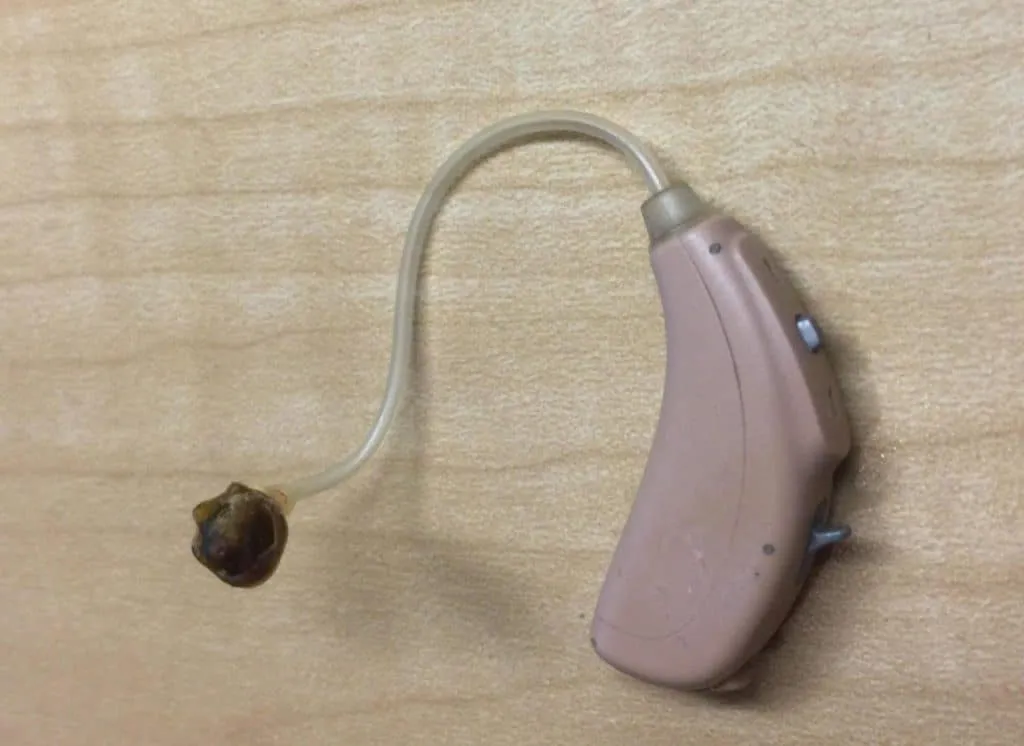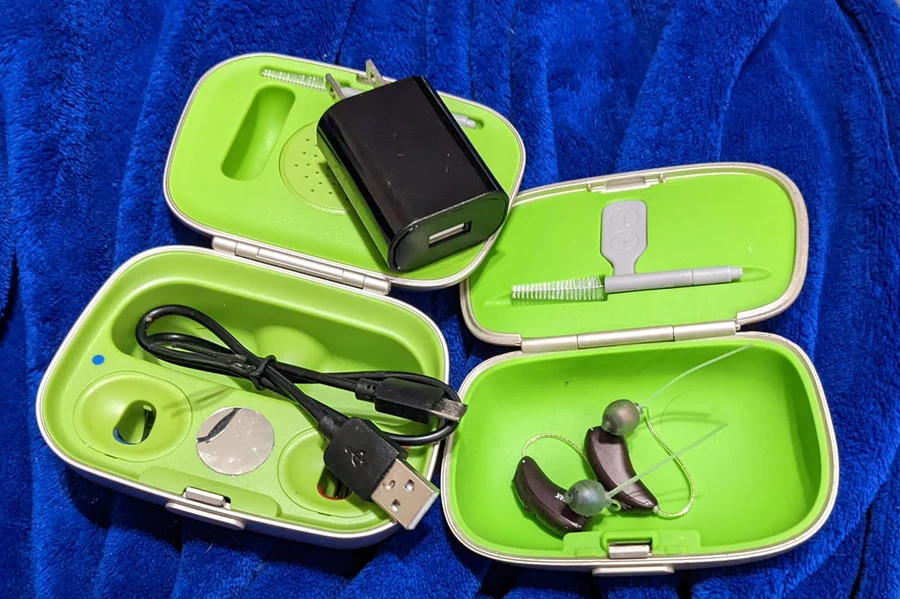How Long Do Hearing Aids Last? (Updated for 2025)
Hearing aids have a lifespan just like all other electronic devices. Over time, they simply do not work as well as when they were brand new. I would say a typical lifespan of a hearing aid would be around 5 years. However, the hearing aid will likely need repair before it hits that 5-year mark.
I’ve seen patients wear hearing aids for longer than 5 years—sometimes up to 8 or 9—but there are several key factors to consider.
Technology Advances Quickly
After 5 years, hearing aid technology will have changed significantly. Think of it like using a smartphone from 2019 in 2025. Hearing aid manufacturers typically release new models every 1–2 years—similar to Apple’s release cycle.
The performance difference between a modern hearing aid and a 5-year-old one is substantial. Today’s devices offer major improvements in speech clarity, background noise suppression, and Bluetooth connectivity, especially in dynamic environments like restaurants or worship services.
Learn more:
Why I Recommend Hearing Aids Even When Patients Are Hesitant
Consider the Cost of Repairs
When you purchase a new hearing aid, it usually comes with a 2–3 year warranty, covering manufacturer repairs and reprogramming if your hearing changes. Based on fitting thousands of devices, most hearing aids require 1–2 repairs during that warranty period.
Once your hearing aid is older than two years, expect repairs to become more frequent. I recommend reading:
The Cost of Repairing a Hearing Aid: What You Need to Know
Repair costs after the warranty can range from $200–$400 per device.

At this point, many patients decide replacement is a better investment than ongoing repairs.
How to Get Your Hearing Aid to Last Longer
When you purchase hearing aids, your audiologist should provide the exact date your warranty expires. Mark it on your calendar or set a phone reminder. One month before that date, send your hearing aids back for refurbishment or replacement.
Pro tip: If you report the aid as having intermittent issues, the manufacturer may send you a brand-new replacement, rather than repairing the existing one.
This method is widely used and highly recommended in audiology practices to extend the lifespan of your devices.
What Would I Personally Do?
I recommend using your primary hearing aids for 4 years, then purchasing a new pair. Convert the older pair into your backup hearing aids.
Learn more:
Best Hearing Aid Recommendations (2025)
The Importance of Backup Hearing Aids
This approach ensures you’re always using recent technology and still have a reliable backup during repairs or service appointments.
Why Do Hearing Aids Wear Out So Fast?
Some people wonder why a hearing aid doesn’t last as long as a car or satellite. The answer: miniaturization and exposure.
Hearing aids are:
- Built in tiny plastic or acrylic shells
- Packed with microchips and microphones
- Exposed daily to moisture, sweat, wax, hair products, and dust
- Frequently dropped or left in warm environments like pockets or cars
Compare that to a Pocketalker—a larger, body-worn hearing device with a 5-year warranty. It’s more durable, but far less discreet.
Most users value discreteness over durability, and that’s what the market delivers. You’ll rarely see ads for “the most durable hearing aid,” but you’ll always see ads for “nearly invisible” hearing aids.
Could we make them more durable?
Yes. The Phonak Titanium CIC is a custom-molded device made from medical-grade titanium. However, the tradeoff is that wireless features like Bluetooth and streaming are sacrificed.
Are Hearing Aids More Durable in 2025?
Yes. Modern hearing aids are more robust than ever. Today’s top models are IP68 rated, meaning they’re highly resistant to dust and water.
For example, hearing aids are submerged in water for 30 minutes, dried, and retested for full function. This test standard has helped lower repair rates significantly.
Can You Shower or Swim with Your Phonak Hearing Aids?
Still, I advise patients: don’t deliberately expose your aids to water. Better durability doesn’t mean waterproof in real life usage.
A Change in Hearing May Seem Like a Hearing Aid Problem
Many patients think their hearing aids are “wearing out,” but the real issue is often that their hearing has changed.
The only way to know is to have:
- Your hearing re-tested
- Your hearing aids’ performance checked
Annual hearing evaluations help make sure you’re still hearing at your best and allow for updated programming.
Why You Should Get Your Hearing Tested Annually
Just like an optometrist adjusts your glasses prescription each year, audiologists help keep your hearing aids fine-tuned to your hearing needs.
Final Thoughts
So, do hearing aids wear out? Yes—at a similar rate to smartphones. But with proper care, sending them in for refurbishment before the warranty expires, and annual reprogramming, you can double their useful lifespan.
Stay updated, stay hearing well, and if you’re unsure about whether it’s time for a new device—talk to your audiologist or read more at HearingInsider.com.

